5 Pieces Of Advice From Parents Of U.S. Ski Team Stars
09.21.2017 | Ski Racing Staff
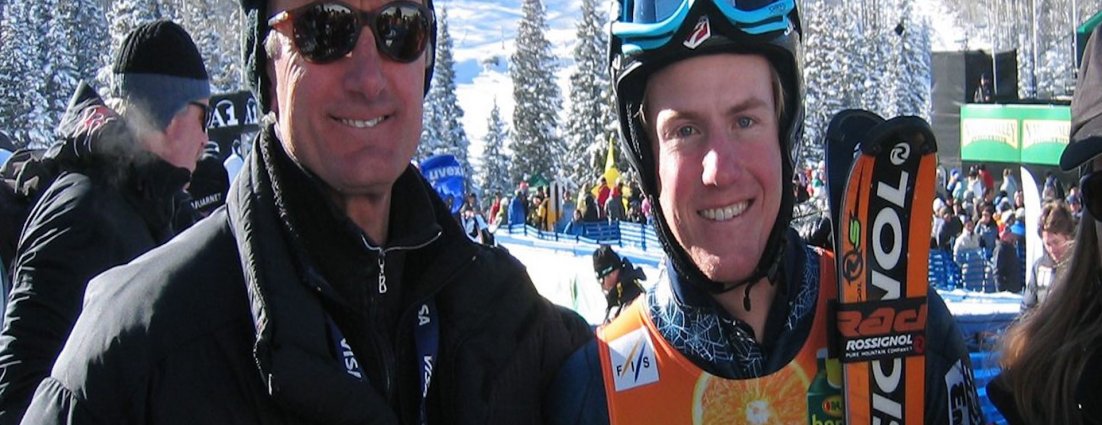
My sister, Annie, has a framed paper towel in her house. Just one little sheet in a frame with a message Sharpied on it in all caps: “SKI FAST. LOVE YOU. – DAD.” If my memory serves me right, my father left that message on our tuning bench after a long night of prepping Annie’s skis so that when she woke up early in the morning for a race, she was reminded of his love and support. Years later, when he passed away, it was items like these that we hung onto because they demonstrate just how much he cared about us. And, in this particular case, we can remember how much effort he put forth to support us as skiers.
Being a ski racing parent is really, really tough. Sometimes, you find yourself embracing your children at the bottom of the course – wiping away tears and doing whatever you can to cheer them up. Other times, it’s the little things like writing notes on paper towels to keep spirits high. In a sport that truly defines the term “emotional roller coaster,” your children are hurtling themselves down ice-covered mountains as fast as they possibly can – weaving through colored gates and doing everything within their power not to crash and burn.
When you’re standing at the finish corral awaiting your kid’s run, it can’t hurt to have a bit of advice handy – especially when it comes from some of the most experienced ski racing parents in the world. So, below, the mothers and fathers of U.S. Ski Teamers Mikaela Shiffrin, Ted Ligety, Laurenne Ross, Steven Nyman, and Jared Goldberg, weigh in with their words of wisdom.
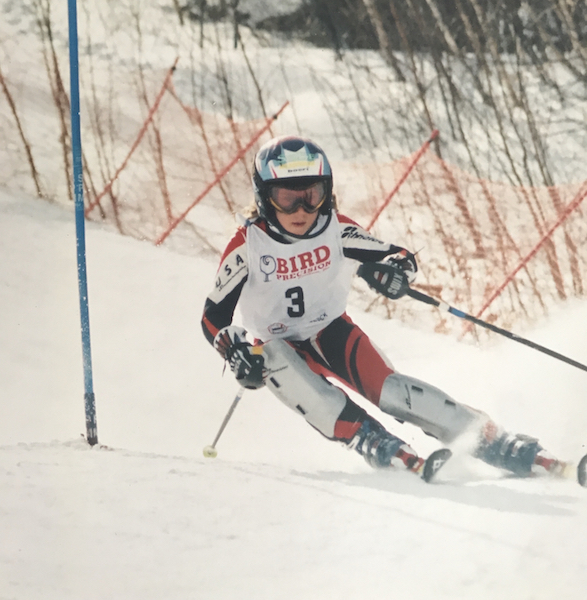
Eileen Shiffrin – Mother of Mikaela Shiffrin
“Looking back on it all, the one word I would use to describe what we did with our kids is ‘support.’ Obviously, that covers a broad, broad range. But when I say ‘support,’ I just mean be prepared in every regard and try to keep the party going as long as you can. It’s very much a family affair that needs be kept fun.
Part of the deal you need to know as the parent of a ski racer is it really does take a ton of time. When you’re new to it, you can’t just say, ‘This is great, my kid is going to be a ski racer!’ and expect them to get all their gear together, get themselves to the hill, and make their own breakfast and lunches and do all the other things it takes to succeed. Furthermore, you can’t even expect them to also be out there skiing all day long in the freezing cold, then doing their homework every night, without your help. Doing all the things a normal kid does and then being a ski racer on top of it all is not easy. So as parents, we have always tried to do what we can to pick up the slack and make ski racing enjoyable. Of course, as they grow up, your kids will take over these responsibilities, but you have to show them the way first.
Being emotionally supportive is so important in addition to of all these physical duties, too. And you don’t always need to have answers to their problems, but just being prepared to listen and talk and hear their frustrations is huge. You’re going to listen to a lot of frustrations and you shouldn’t necessarily tell them to just throw in the towel but instead try to be understanding and simply let them vent and try to find a bright side of everything.
It’s also so important to be modest if you’re seeing your kid have a lot of success. Our approach has always been to be pretty quiet and not super flashy about any wins. We were always careful to save any big celebrations for the car, or until we got home. Just be respectful of the other kids. And if your kid doesn’t win, make sure they congratulate the kid who did win, and tell them they did a great job.”
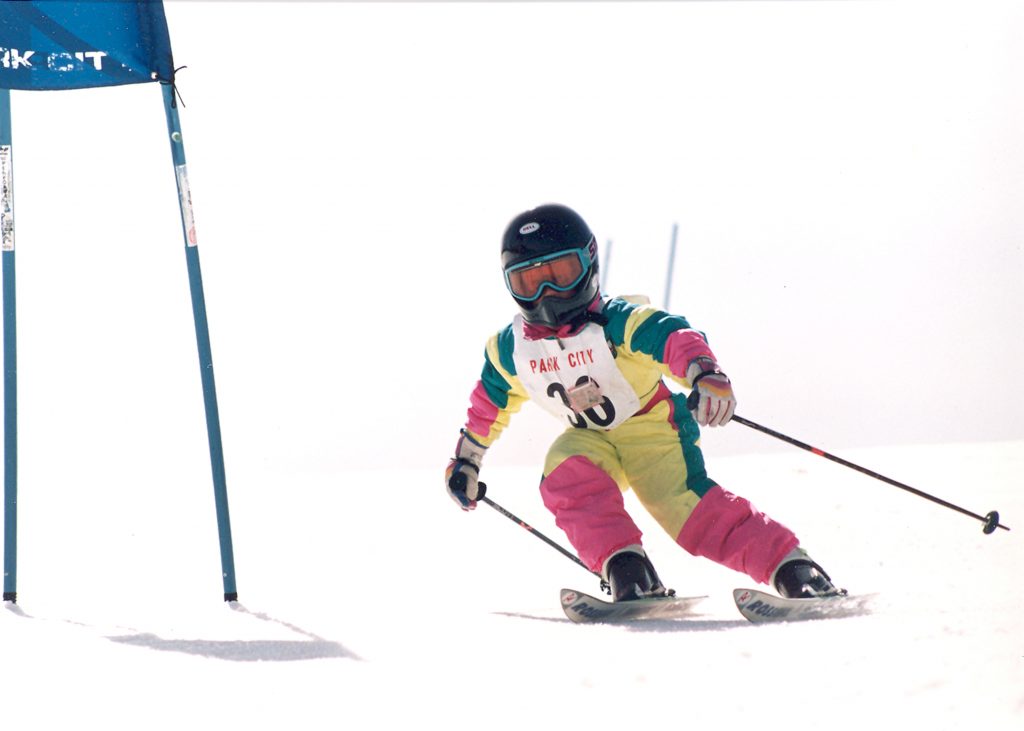
Ted Ligety racing fast at Park City, Utah, in 1992. Image courtesy of the Ligety family
Bill Ligety – Father of Ted Ligety
“Give the kid lots of opportunities to try different things, not just ski racing. Then, get out of the way and let that kid follow his or her passion, because what I’ve seen so much in Park City is the kids whose parents really wanted them to be ski racers ended up not liking ski racing.
In our particular case, we’re very lucky to be in Park City because there are all of these different opportunities for kids – a myriad of things. My wife and I were never ski racers. We like to ski, but we never had any anticipation that our kids would be ski racers. We put our kids in the learn-to-ski program at Park City and Deer Valley. They liked it. They wanted to keep doing it, so we kept supporting them. But, if they had said, ‘Mom, Dad, I’m tired of ski racing, and I want to do something else,’ we would have said, ‘Phew, well that saves us a few thousand dollars a year. Want to swim? We’ll buy you a bathing suit [laughs].’
We were different than a lot of the parents in that way. A lot of them had ski industry backgrounds or were very competitive and wanted their kids to be great ski racers following in their footsteps. We just never had that orientation. It was crazy, there would be parents at the bottom of the hill adding up who had how many points, and I couldn’t tell you what any of that means, even today. So we were very much supportive. We went to many races, but not all of them, and that’s because we were often busy with our real estate business. But that wound up helping in the long run because when our kids saw us working, it taught them it takes a lot of effort to get results. Before we knew it, we were in Torino and Ted won an Olympic gold medal when he was 21. You just never know how things are going to turn out. He’s certainly living proof that anyone can do it with hard work.”
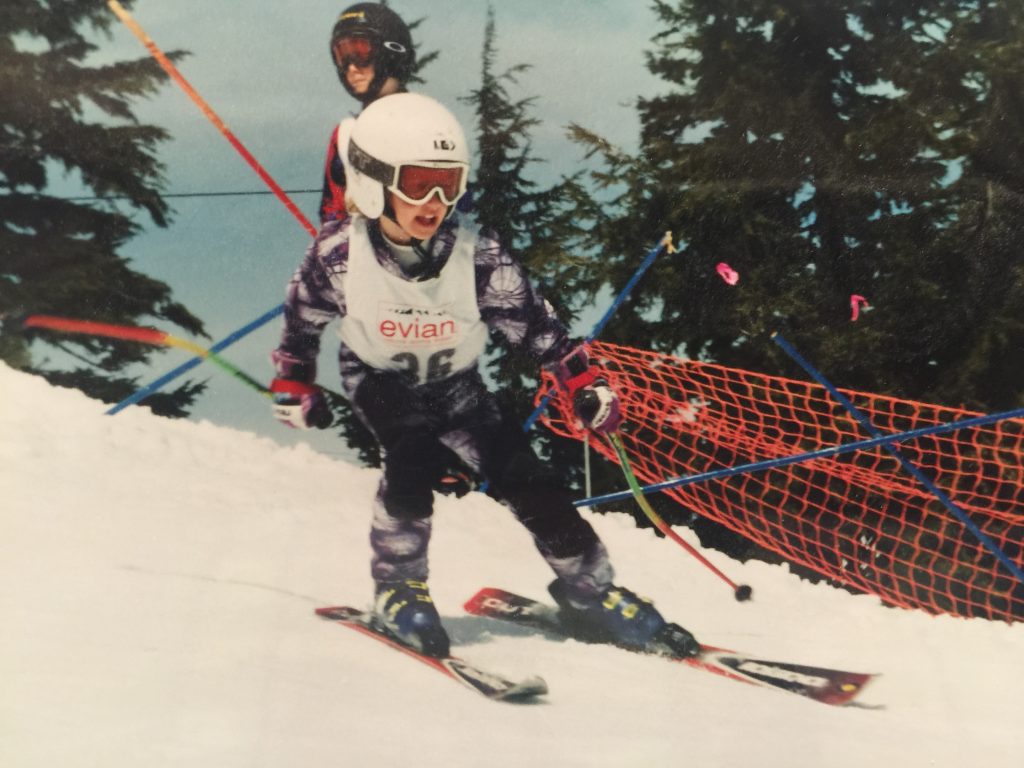
Laurenne Ross going for it at Schweitzer, Idaho, as a young child. Image courtesy of Janey Purvis and Robert Ross
Janey Purvis – Mother of Laurenne Ross
“With Laurenne, it was honestly kind of easy because she was just so motivated. There was no stopping her. But, I think the most important thing I’ve learned is to always listen. Listen to your child and the direction they say they want to go in. Support them. Listen. But let them really make their own decision. She was the one who really wanted to go forward with the sport. So, for me, it was always a matter of listening to her and supporting her and providing her with what she needed to reach her goals and follow her dreams.
When you don’t do this, everything backfires. They know what they want to do and if you try to push them too hard in any direction it’ll just push them further away from what you’re trying to achieve. I really think it has to be completely self-motivated on their end, and if they don’t want to pursue something, you can’t push them or they’ll push back. At least my kids did [laughs]. The worst thing you can do is push a child in a direction they are not intrinsically motivated toward.
This is kind of revealing, but she once said she would rather die than not be able to ski. And from there on I just said, ‘I get it. I’m good, and I’ll never get in your way.’ I’ll tell you, I’ve watched her be hauled off by a helicopter, I’ve been in the ambulance with her, I’ve been in the emergency room with her many times. But, I always remember those words of hers. It’s her life, and she wouldn’t want to be here without skiing.”
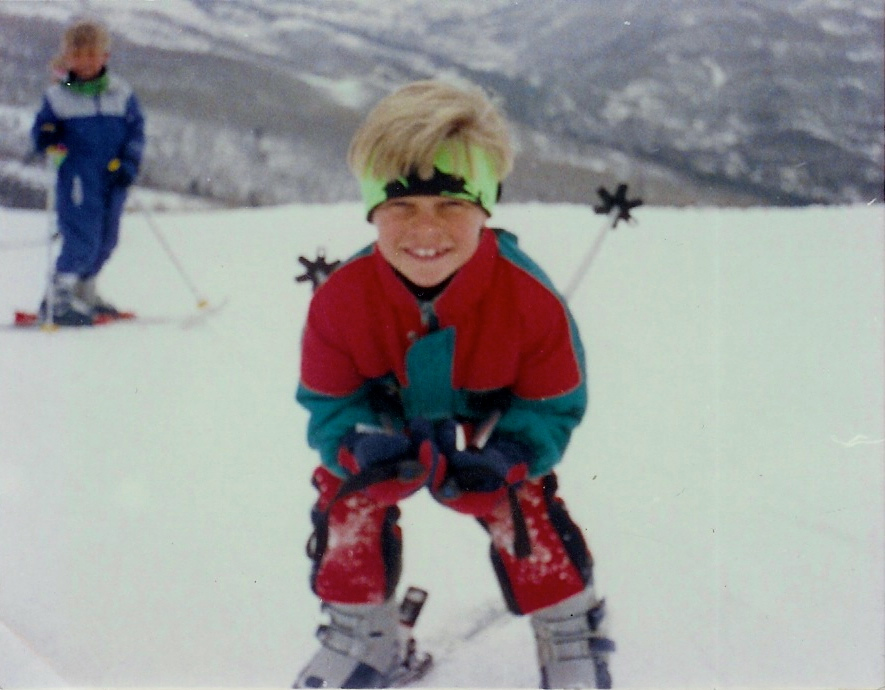
Eight-year-old Steven Nyman perfecting his tuck at Sundance, Utah. Image courtesy of the Nyman family
“Everybody says this and not many do it: keep it fun and keep it positive. It’s almost cliché, but it’s so important and having fun often goes hand-in-hand with improvement. As you get better and better, that’s exhilarating. So what makes it fun is not just being silly and fun and games and whatnot, but also improvement. And a good coach that can bring out and point out that improvement is crucial to have. That idea of having fun, but being positive, often results in improvement.
And improvement isn’t always just faster times. To me, it’s skiing correctly, not necessarily faster. The speed will come; just have fun getting better. If you focus on what went right, even if 10 things went wrong and two things went right, you focus on those two things. You anchor that and celebrate that positive behavior.
We’ve always just tried to support Steven and not be those helicopter parents who spin out of control. It’s him, not us. There’s enough pressure inherently in ski racing. You’ve got to minimize that pressure because it’s there anyway. And if there’s failure, don’t panic. Because, if you panic, your kid will panic too. Then take those failures and learn from them.”
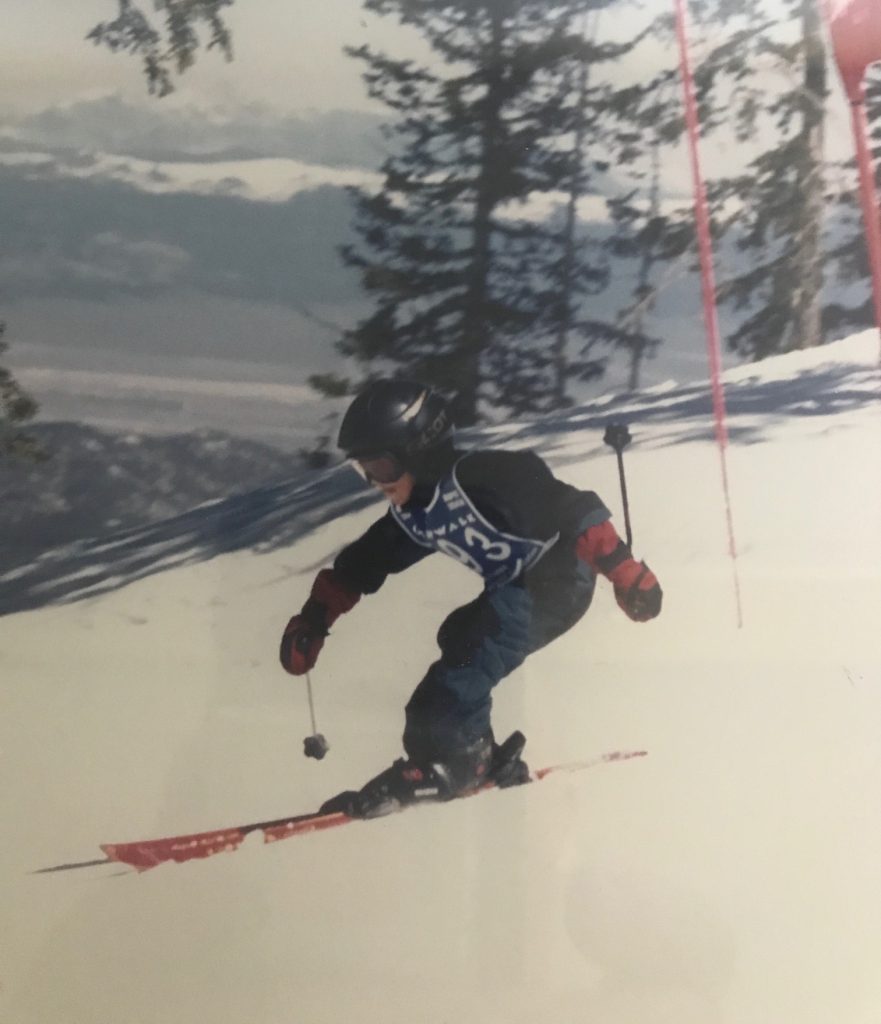
Jared Goldberg going for gold at Brian Head, Utah, in his early years. Image courtesy of the Goldberg family
Don Goldberg – Father of Jared Goldberg
“You’ve got to realize right away that you’re not the coach. You’re there for support. You need to get them to the hill on time with the right equipment and the right food. And, from there, your kid learns to love skiing on their own terms.
Jared has had this desire for skiing since a very young age. It was totally off the charts, and it had nothing to do with my personality. Everyday, he wouldn’t want to leave until the lifts were entirely closed. I’d drop him off in the morning, I’d meet him in the plaza around 3:15 and say, ‘You ready to go?’ And he’d always say, ‘No, Dad, the lift is still going.’ He had the love for skiing that some kids just don’t have. And I never said to him, ‘No, Jared. I’m exhausted. We’ve got to go home.’ I’d say, ‘Alright, let’s go take another run.’ I would be exhausted, but because he wanted to do it – because he had the passion for it – and I would go along with it.
Then, later on, there were, of course, times where he didn’t want to do it. He was just worn out. But that’s when everybody pushes everybody in the family to stay on track. It’s so important to be positive. So many parents put so much pressure on their kids to do well, and we’ve always tried to simply acknowledge that getting in the starting gate in the first place is an incredible accomplishment for any kid out there.
But, I’ve got to tell you, one of the best sounds I’ve ever heard in my life was when he turned 16 and I heard the garage door moving at six in the morning.”
About the author: Connor W. Davis is a freelance writer from the Green Mountain State with a deep passion for all things skiing. From racing at Stratton Mountain School in Vermont to serving as Online Editor at FREESKIER Magazine in Colorado, his days spent on snow have profoundly shaped his life. Find more of his work at ConnorWDavis.com.